#tom noonan

“I’m alone, I’m not lonely”
These five words suggest the dichotomy at the heart of Heat, Michael Mann’s LA crime-opus: are a man’s personal sacrifices worth the successes they may bring in a professional capacity? Mann’s exploration of this duality is the basis of the film, and it’s primarily through his creation of character that he is able to explore this so successfully, and, rather surprisingly, so poignantly.
Mann paints his characters with such depth that he blurs the lines between right and wrong, and the audience wants both sides to win - or, rather more aptly, the audience wants neither side to lose. By showing us the humanity in both De Niro’s master criminal McCauley (who intervenes when the wife of his friend (and partner-in-crime) begins an affair with a liquor salesman) and Pacino’s detective Hanna (who plays the surrogate father to his third wife’s young daughter), Mann invites us into both of their worlds, making them more than just cop and criminal - they are characters to root for and, above all, they are men.
They are men juggling personal crises with the pursuit of professional gain, yet neither of them seem to be able to handle it. It’s a sympathetic, noble pursuit for both characters, and it’s to Mann’s credit that he can imbue them with such humanity and sympathy that they’re worth rooting for - particularly a character as naturally at odds with an audience as McCauley.
But that’s what makes Heat such a compelling film. Mann creates a moral dilemma - not unlike the one the characters are facing - for the audience: why should we care about McCauley? He’s the villain here. But we do, because he’s such a wonderfully complex, maybe even relatable (at a base level, anyway) character. At least he is to Hanna - he sees him as an intellectual equal (notably in one extraordinary diner sequence, when the two come face to face).
But as Hanna and McCauley continue their unrelenting game of chess, and their personal lives begin to deteriorate around them, their quasi-tragic battle of wits becomes something of an obsession - or maybe even an escape from their failing personal lives. But it’s McCauley’s who blinks first, and once his insatiable desire for revenge kicks in, his charade of a happy ending begins to unravel The battle of wits descends into a cat and mouse chase, and, finally, inevitably, Hanna gets his man, and the two men acknowledge their respect for each other with one last, profoundly emotional handshake.
But even as McCauley’s life ebbs away at the victorious hands of Hanna, one question remains: was the battle worth the sacrifice? The answer remains more complicated than a simple yes or no, but when you’re playing the game for the thrill of the chase, barbecues and ballgames seem like little of an alternative when the excitement of bank heists and gun fights are never too far away.

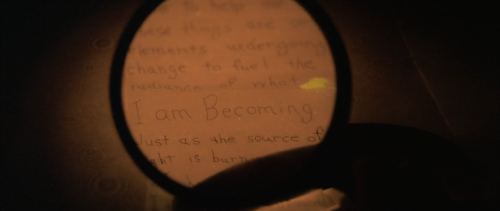

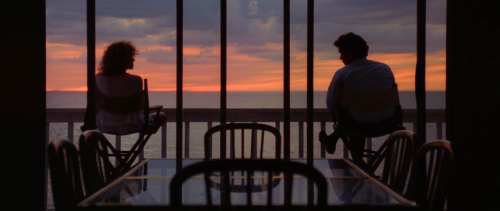
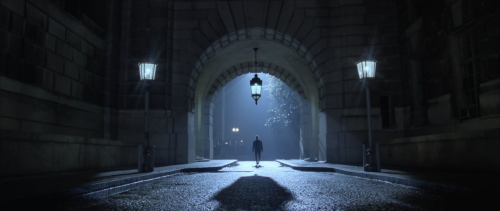
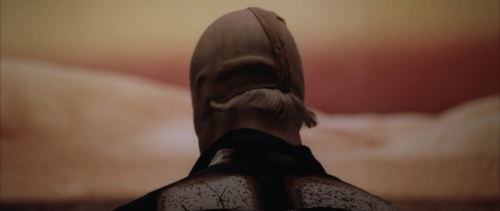
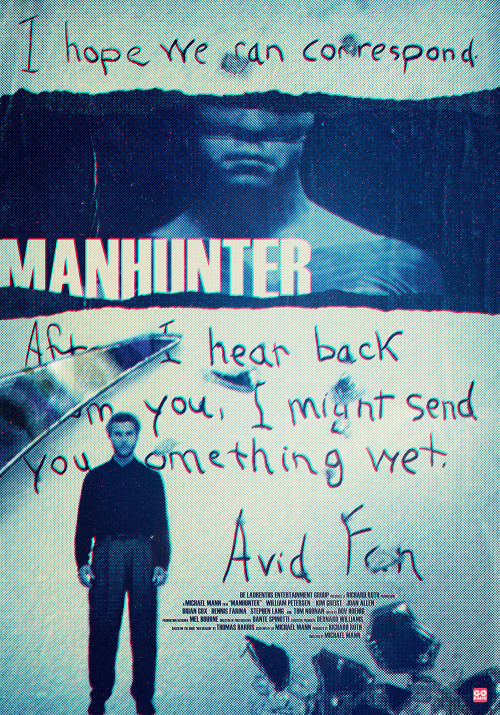
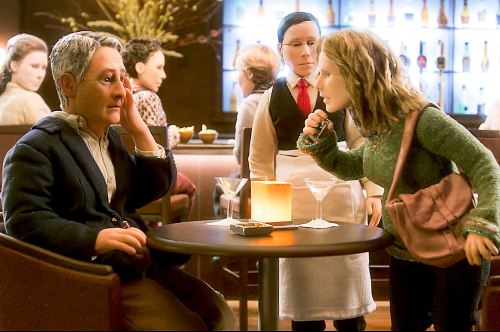
![Manhunter [ 1986 ] Dir: Michael MannDoP: Dante Spinotti Manhunter [ 1986 ] Dir: Michael MannDoP: Dante Spinotti](https://64.media.tumblr.com/3caf5f59fb7ad8d75ff44e9abe5e7ea0/tumblr_nb567esxVz1st09ivo1_500.jpg)
![Manhunter [ 1986 ] Dir: Michael MannDoP: Dante Spinotti Manhunter [ 1986 ] Dir: Michael MannDoP: Dante Spinotti](https://64.media.tumblr.com/b7d7dd8e02072105b4ce7d760306dbf2/tumblr_nb567esxVz1st09ivo2_500.jpg)
![Manhunter [ 1986 ] Dir: Michael MannDoP: Dante Spinotti Manhunter [ 1986 ] Dir: Michael MannDoP: Dante Spinotti](https://64.media.tumblr.com/934c8500afc7b674a813c49be24bec3e/tumblr_nb567esxVz1st09ivo3_500.jpg)
![Manhunter [ 1986 ] Dir: Michael MannDoP: Dante Spinotti Manhunter [ 1986 ] Dir: Michael MannDoP: Dante Spinotti](https://64.media.tumblr.com/49b0de6cd8462f07413184a17d496ee5/tumblr_nb567esxVz1st09ivo4_500.jpg)
![Manhunter [ 1986 ] Dir: Michael MannDoP: Dante Spinotti Manhunter [ 1986 ] Dir: Michael MannDoP: Dante Spinotti](https://64.media.tumblr.com/85c424dad485d93aef9e4ce0c506b364/tumblr_nb567esxVz1st09ivo5_500.jpg)
![Manhunter [ 1986 ] Dir: Michael MannDoP: Dante Spinotti Manhunter [ 1986 ] Dir: Michael MannDoP: Dante Spinotti](https://64.media.tumblr.com/bad551f709d13c0f1ee2ec92ceeb884a/tumblr_nb567esxVz1st09ivo6_500.jpg)
![Manhunter [ 1986 ] Dir: Michael MannDoP: Dante Spinotti Manhunter [ 1986 ] Dir: Michael MannDoP: Dante Spinotti](https://64.media.tumblr.com/5bc38fc650b2081f7287581fed0ca9c6/tumblr_nb567esxVz1st09ivo7_500.jpg)
![Manhunter [ 1986 ] Dir: Michael MannDoP: Dante Spinotti Manhunter [ 1986 ] Dir: Michael MannDoP: Dante Spinotti](https://64.media.tumblr.com/c39965cb9648eb013ea71b0c8592efd3/tumblr_nb567esxVz1st09ivo8_500.jpg)
![Manhunter [ 1986 ] Dir: Michael MannDoP: Dante Spinotti Manhunter [ 1986 ] Dir: Michael MannDoP: Dante Spinotti](https://64.media.tumblr.com/904e346ad8db17081b7478d454657fe6/tumblr_nb567esxVz1st09ivo9_500.jpg)
![Manhunter [ 1986 ] Dir: Michael MannDoP: Dante Spinotti Manhunter [ 1986 ] Dir: Michael MannDoP: Dante Spinotti](https://64.media.tumblr.com/306e686d393beb45ca4611db1480476d/tumblr_nb567esxVz1st09ivo10_500.jpg)